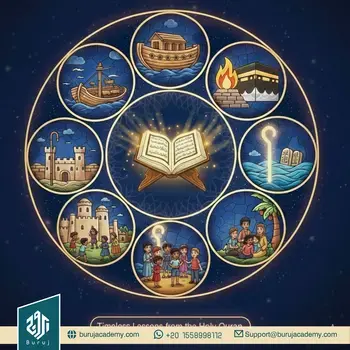The best Tafseer of the Quran is essential for deepening understanding of the Quranic text, which providing rich insights into its linguistic, historical, and spiritual meanings. This article explores the most respected and widely used Tafseer works to help readers select the best Quranic commentary suited to their study needs.
What is the best Tafseer of the Quran?
The Holy Quran, the final revelation from God, is a profound and multi-layered text. While translation can convey the basic meaning, truly grasping its depth, context, and timeless wisdom requires Tafseer (exegesis or commentary). Tafseer is the science dedicated to explain the Quranic verses, drawing on linguistic, historical, and theological sources.
Contact Us For More Details about our courses
For the earnest Muslim, the question isn’t if they should study Tafseer, but “What is the best Tafseer of the Quran?” The answer, however, is not singular. The “best” depends entirely on your current level of knowledge, your primary objective (e.g., jurisprudence, spirituality, linguistic study), and whether you need an Arabic text or a reliable English translation.
This comprehensive guide will navigate the complex world of Quranic exegesis that highlighting the most revered and authentic works—from the foundational classics to accessible modern commentaries—to help you select the perfect companion for your journey of faith and knowledge.
Check out Buruj Academy’s Islamic courses today!
Understanding Tafseer and Its Importance
Tafseer which derived from the Arabic root word meaning “to explain” or “interpret,” refers to the comprehensive commentary and explanation of the Quran. It plays a vital role in helping Muslims and Quran students grasp the intended messages behind the verses. Through Tafseer, scholars clarify linguistic nuances, historical contexts, reasons for revelation (asbab al-nuzul), rulings derived from verses, and broader thematic lessons which making the Quran’s meanings accessible and applicable.
The best Tafseer of the Quran upholds authenticity by being rooted in the Quran itself and the Sunnah (sayings and actions of Prophet Muhammad), and reliable scholarly methods. It balances scholarly depth and accessibility while addressing diverse audiences—from beginners to advanced Islamic researchers.
Historical Evolution of Tafseer
The tradition of Quranic Tafseer began during the lifetime of the Prophet Muhammad, as he explained revelations to companions. Early generations preserved knowledge of context and meaning, forming the basis of Tafseer by transmission (Tafseer bi’l-Riwaya). Over centuries, scholars developed methods using linguistic reasoning, jurisprudential analysis, and intellectual reflection (Tafseer bi’l-Diraya and Tafseer bi’l-Ishara).
Classical Tafseer works emerged in the first millennium of Islam that authored by scholars who rigorously synthesized transmitted knowledge with analytical insight. These Tafseer remain foundational references today, providing trusted and comprehensive commentary.
Read Also: Free Tafseer Classes Online
Understanding Tafseer: The Two Main Methodologies
To choose the best Tafseer, you must first understand the two core methodologies used by scholars throughout Islamic history:
1. Tafsir bi’l-Ma’thur (The Narrative/Transmitted Interpretation)
- Definition: This method relies strictly on authentic traditional sources for interpretation. It is considered the most reliable and authoritative approach, as it prioritizes what was narrated directly from the sources closest to the Prophet Muhammad (peace be upon him).
- Sources Used:
- The Quran by the Quran: Explaining one verse with another.
- The Quran by the Sunnah (Prophetic Teachings): Explanations given by the Prophet (PBUH) himself.
- The Quran by the Companions (Sahabah): The interpretations of the immediate students of the Prophet.
- Best Examples: Tafsir al-Tabari and Tafsir Ibn Kathir.
2. Tafsir bi’l-Ra’y (The Rational/Opinion-Based Interpretation)
- Definition: This method involves the use of independent reasoning (ijtihad), linguistic analysis, and scholarly opinion to deduce the meaning of verses where a direct narrative is not explicitly available, or to extrapolate legal and philosophical lessons.
- Condition: Praiseworthy Tafsir bi’l-Ra’y must still be firmly grounded in authentic Islamic principles, the Arabic language, and the broader context of the Quran and Sunnah.
- Best Examples: Tafsir al-Razi (Mafatih al-Ghayb) and Al-Kashshaf (by Al-Zamakhshari).
The Foundational Pillars: Essential Classical Tafseer Works (In Arabic)
These works are the gold standard and the absolute references for scholars and advanced students, regardless of their school of thought.
1. Jami’ al-Bayan fi Ta’wil Ay al-Qur’an (Tafsir al-Tabari)
- Author: Imam Muhammad ibn Jarir al-Tabari (d. 923 CE).
- Significance: Widely considered the mother of all Tafseers. It is the earliest and most comprehensive collection of Tafsir bi’l-Ma’thur. Al-Tabari meticulously cites various narrations (with chains of transmission) regarding a verse’s meaning, linguistic nuance, and related reports that making it the primary historical and narrative reference.
- Target Audience: Advanced scholars and researchers.
2. Tafsir al-Qur’an al-‘Azim (Tafsir Ibn Kathir)
- Author: Hafiz Imad ad-Din Ibn Kathir (d. 1373 CE).
- Significance: The most popular and widely-read Tafseer in the world today. It is a brilliant and concise summary of Tafsir al-Tabari and other works, distinguished by its focus on explaining the Quran with:
- The Quran itself.
- The Sunnah of the Prophet (PBUH).
- The sayings of the Companions.
- Target Audience: Scholars, intermediate students, and is the most common starting point for Muslims globally.
3. Al-Jami’ li Ahkam al-Qur’an (Tafsir al-Qurtubi)
- Author: Imam Abu ‘Abdullah al-Qurtubi (d. 1273 CE).
- Significance: Known as the “Tafseer of Legal Rulings” (Ahkam). It is invaluable for anyone studying Fiqh (Islamic Jurisprudence), as Imam al-Qurtubi focuses on extracting the legal and ethical lessons from each verse, debating the positions of the various schools of Islamic law.
- Target Audience: Students of Fiqh, jurists, and those interested in the practical application of Quranic verses.
The Best Tafseer for the Modern Reader: Accessibility and Contemporary Relevance
For beginners and those seeking practical, modern relevance, the following works are highly recommended.
1. Tafsir al-Karim al-Rahman (Tafsir as-Sa’di)
- Author: Shaykh Abd al-Rahman al-Sa’di (d. 1957 CE).
- Key Features: This is often cited as the best Tafseer for beginners and intermediate students. It is known for its clear, accessible language and powerful focus on the practical lessons, spiritual benefits (Tazkiyah), and general meanings of the verses, minimizing complex scholarly debates.
- Why it’s Popular: Its direct, spiritual, and non-sectarian approach resonates deeply with modern readers.
2. Tafsir al-Jalalayn
- Authors: Jalal ad-Din al-Mahalli and his student Jalal ad-Din as-Suyuti (d. 1505 CE).
- Key Features: It is the most concise and highly condensed classical Tafseer. It is written almost like a running commentary on the Quranic text itself. While brief, it is a foundational text in many madrasas and serves as an excellent resource for quick, foundational understanding after a reader has mastered the literal translation.
- Target Audience: Students who have mastered basic Arabic grammar and need a concise scholarly reference.
3. Tafhim ul Quran (The Meaning of the Quran)
- Author: Syed Abul A’la Maududi (d. 1979 CE).
- Key Features: A monumental and highly influential contemporary work originally written in Urdu. It is famous for its thematic and socio-political commentary which addressing the challenges and relevance of the Quran to modern society, activism, and daily life. It is particularly popular in the Indian subcontinent and among politically-conscious Muslims.
- Target Audience: Readers interested in the ideological and practical application of the Quran in the modern world.
Criteria for the Best Tafseer
When evaluating Tafseer works, several key criteria determine their merit:
- Authenticity and Authority: The Tafseer must align strictly with the Quran and verified Prophetic traditions.
- Clarity and Comprehensiveness: It should explain difficult vocabulary and verses clearly, making it suitable for the intended audience.
- Language Accessibility: Availability in languages like Arabic, English, Urdu broadens its reach.
- Depth of Analysis: Some Tafseer focus on linguistic details; others on jurisprudence or spiritual insights.
Choosing the Right Tafseer For beginners
These works are accessible and focus on simple language and clear explanations.
- Tafsir al-Sa’di by Shaykh Abdur Rahman Nasir as-Sa’di: Praised for its clear, straightforward style and focus on the meaning and lessons of the verses.
- Ma’ariful Quran by Mufti Muhammad Shafi: Written in an easy-to-understand narrative style, it provides thematic discussions of Quranic passages.
- Tafheem-ul-Quran by Syed Abul A’la Maududi: Written in the 20th century, this tafsir presents the Quran’s message in a way that is relevant to modern issues. However, it should be noted that Maududi was not a classical scholar, and some of his views are debated.
Choosing the Right Tafseer For classical understanding
These are foundational works that provide a thorough grounding in classical Islamic scholarship.
- Tafsir al-Tabari by Imam al-Tabari: Considered one of the earliest and most authoritative tafsirs. It is extremely comprehensive, documenting different chains of narration for interpretations from the Prophet’s companions and their students.
- Tafsir ibn Kathir by Ibn Kathir: The most famous and widely accepted tafsir in the world, especially among Sunni Muslims. It is known for explaining Quranic verses by using other verses, narrations from the Prophet (Hadith), and the sayings of his companions.
- Tafsir al-Qurtubi by Imam al-Qurtubi: A very detailed tafsir that focuses on Islamic legal rulings (ahkam) which derived from Quranic verses. It is an excellent resource for those interested in the legal aspects of Islam.
- Tafsir al-Jalalayn by Jalal al-Din al-Mahalli and Jalal al-Din al-Suyuti: A concise and accessible classical tafsir that is often used by students as a foundational text. It is especially useful for those with a basic understanding of classical Arabic.
Choosing the Right Tafseer For a nuanced, modern perspective
These works combine traditional knowledge with contemporary issues and methods of interpretation.
- The Study Quran edited by Seyyed Hossein Nasr: A modern, comprehensive work of Quranic commentary that draws from a wide range of traditional sources from across the Muslim world. It is highly regarded in academic circles for its inclusivity of different interpretive traditions.
- Tafsir al-Manar by Muhammad Rashid Rida: A 20th-century tafsir that re-examines the Quran’s message in the context of colonialism and modernity. It emphasizes social and rational interpretations of the Quran.
Choosing the Right Tafseer For specialists
These are specialized works focusing on specific aspects of Quranic study.
- Tafsir al-Kabir (The Great Exegesis) by Fakhr al-Din al-Razi: A massive work that explores philosophical, theological, and scientific dimensions of the Quran.
- Al-Kashshaf by al-Zamakhshari: An important work with a linguistic focus, known for its emphasis on the grammatical and rhetorical excellence of the Quran.
How to choose best tafseer?
To find the right tafsir for you, consider your goals:
- For authenticity: Start with Tafsir ibn Kathir. It is one of the most reliable and widely used, drawing from the most trusted sources.
- For clarity and simplicity: Beginners should explore Tafsir al-Sa’di or Ma’ariful Quran.
- For legal rulings: Consult Tafsir al-Qurtubi for its detailed legal commentary.
- For academic or comparative study: Look into The Study Quran for its breadth of sources and modern perspective.
Many serious students of Islam will consult multiple tafsirs to get a comprehensive understanding, recognizing that each scholar and work has a different approach and emphasis.
The Most Influential Books of Tafseer Among Sunnis
- Tafsir al-Tabari (Jami’ al-Bayan fi Ta’wil Ay al-Qur’an)
- Al-Kashshaf ‘an Haqa’iq al-Tanzil wa ‘Uyun al-Aqawil.
- Mafatih al-Ghayb (Tafsir al-Razi)
- Tafsir al-Qurtubi (Al-Jami’ li Ahkam al-Qur’an)
- Anwar al-Tanzil wa Asrar al-Ta’wil (Tafsir al-Baydawi)
- Tafsir Ibn Kathir.
Conclusion
The best Tafseer of the Quran is a foundational tool for unlocking the Quran’s profound meanings. Whether through classical scholarship or modern digital resources, studying Tafseer enriches one’s spiritual connection and intellectual standing in Islam. Exploring multiple Tafseer and utilizing diverse resources leads to a holistic understanding of the Quran’s timeless guidance.
Readers encouraged to start with recommended Tafseer which reflecting their needs and gradually expand their studies to fulfill the Quran’s call for knowledge and reflection.
Connect with Our Community
High-value education extends beyond the classroom. We provide free resources and a supportive community to help you on your journey. For free tips, student stories, and academy updates, follow us on Facebook, watch our educational lessons on YouTube, and join the conversation on Instagram.



